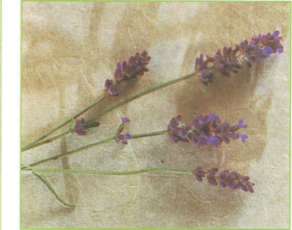Essential oils have a strong influence on the human body:
- fight bacteria and viruses;
- stimulate the immune system, increase resistance to stress and improve metabolism;
- contribute to the improvement of the internal environment of the body and its natural cleansing of poisons and toxins.
Many essential oils are superior in strength and chemical antiseptics. Moreover, their antiseptic ability does not decrease with time: even microbes prolonged contact with essential oils practically do not produce them stability.
Some essential oils have the ability to cause the formation of endorphins - "hormones of joy". Others contain pheromones that attract the attention of the opposite sex.
However, the use of essential oils requires compliance with the allowable concentrations, knowledge of the contraindications. One bar of soap weighing 100 grams should have no more than 7 drops of one essential oil or mixtures thereof. When using strong-smelling oils such as clove oil or lemongrass, the number of drops is reduced to 3.
Particular care in working with essential oils should be exercised during pregnancy, and in cardiovascular diseases.
Before use, check the essential oil to personal tolerance - if you like the smell. Your body is wise, and if you like the flavor - it is your body needs It will gently influence you, will balance state. That is why preferences in fragrances change over time, and the views of different people on the same smell are so different.
Often under the guise of essential oils offered by their synthetic counterparts. According to statistics, sold ten times more essential oils than it produces. Fake or highly diluted oil only mimic the smell of natural oils, but not its properties.
Reasons to doubt the quality of essential oils:
- suspicious location;
- low cost;
a similar price is easy to obtain (orange, mint) and rare essential oils (rose, sandalwood);
- the presence of a range of non-existent essential oils (cherry, strawberry, banana, Apple, peach);
- a bottle of dark glass;
- lack of information on the label about the method of obtaining oil and the Latin names of plants;
- sharp, aggressive smell.
The Council
Essential oils - highly concentrated liquids. Therefore it is better to use a lower concentration, than to exceed it.
The use of essential oils in the manufacture of soap is not included in the classical methods of aromatherapy. However, the ease of use of essential oil as just that. Even in very low concentrations it has on the human body beneficial. That is why quite simply smell, to feel it. Moreover, the essential oil will be contained in the suds and in contact with the skin,
Here is just a small list of available essential oils with brief characteristics. More information can be found in the specialized literature on aromatherapy.
Citrus oils: orange, lemon, Mandarin, bergamot - increase skin sensitivity to sunlight.
Orange oil sweet (Citrus sinensis)
Aroma is sweet, almost floral. Relieves stress, improves mood. Cleanses the skin, gives elasticity, lightens dark spots.
Combined with oils of ylang-ylang, ginger, Clary sage, lavender and all citrus fruits.
Basil oil (Ocrmum bosilicum)
The aroma is spicy-sweet with fresh balsamic notes. One of the best means of toning and strengthening the nervous system. Softens and rejuvenates aging skin.
Combined with the scent of ginger, bergamot, lavender, lemongrass, peppermint, sage.
Oil of cloves (Suzugium aromoticum)
The aroma is spicy, peppery. Mobilizes internal forces and contributes to maintaining good health, very positive, improves memory,
Combined with oils of ylang-ylang, lavender, sage, bergamot.
The Council
Oil well with their own kind, for example, perfectly complementary spicy oil; the same applies to oils from plants of the same family (say, Labiatae: Basil, sage), usually fit together oils derived from woody plants, etc.
Ylang-ylang (Cananga odorata)
The aroma is floral and sweet, reminiscent of Jasmine. Relieves emotional stress. Effective in insomnia and depression. Causes a mild euphoria and liberating sensuality. Beneficial effect on the skin: gives it elasticity, creaminess and tenderness.
Combined with oils of rosewood, cedar, patchouli, Clary sage and all citrus fruits.

The oil of ginger (Zingiber officinale)
The aroma is sharp, warm, spicy with herbal notes. Sharpens perception, enhances memory, helps to overcome depression and apathy. Improves skin tone oily skin, cleanses, eliminates inflammation and tightens pores.
Combined with oils of cedar, juniper, palmarosa, patchouli, rosewood and citrus.

Lavender oil (lovendulo officinalis)
Aroma cool, delicate, floral. Strong antidepressant. Helps with insomnia, nervousness, depression, stress, brings peace and clarity. Suitable for any skin care type.
Combined with oils of clove, cypress, cedar, patchouli, idalia, peppermint, rosemary, eucalyptus, lemongrass, tea tree and citrus.

Lemongrass oil (citratus Cumoopogon)
Aroma of grassy citrus. Has a General tonic and stimulating effect on the entire body. Beneficial for combination and oily skin: gives it a tone and opens your pores, reduces inflammation of the sebaceous glands.
Combined with oils of Basil, lavender, peppermint, rosemary, eucalyptus.

Lemon oil (Citrus limon)
The aroma of fresh, cold, bitter, citrus. Invigorates, provides a burst of energy, encourages creativity, improves concentration. Whitens dark spots and freckles, removes vascular pattern.
Combined with oils of ylang-ylang, ginger, lavender, juniper, peppermint, eucalyptus, citrus.
Oil of Mandarin (Citrus reticulata)
The flavor, the most light and delicate of all citrus, sweet, almost floral. Improves mood and helps to cope with stress, insomnia, depression. Smoothes wrinkles, improves the complexion.
Combined with lavender oil, juniper, sage and citrus.
The Council
Aroma of citrus oil is kept for long, so it is recommended to use them in combination with essential oils of lemongrass or citronella or add in soap dried grated orange rind or lemon.
Peppermint oil (Mentha piperita)
The aroma of warm, fresh, minty, with a hint of camphor. Restores strength and eliminates nervous excitement, refreshing, "awakens" the skin, healthy signs of fatigue.
Combined with lavender, Basil, lemongrass, rosemary, pine, eucalyptus and citrus.

The Council
Patchouli oil is used for compounds with a "sensual tone. In combination with ylang-ylang gains depth and strength, gives the composition a refined Oriental flavour.
Patchouli oil (Pogostemon coblin)
Aroma persistent, full-bodied, bitter-tart. Beneficial effects on the nervous systems}, calms and soothes, and tones the body. Nourishes, refreshes, renews and smoothes dry and tired skin.
Combined with oils of ylang-ylang, clove, bergamot, sage, orange, cedar, rosewood.
Rosemary oil (Rosmarinus officinalis)
The aroma is strong, sweet, herbal, with hints of camphor. Is a mental and physical stimulant. Strengthens memory, helps to concentrate. Improves the condition of oily skin, tightens pores.
Combined with oils of lavender, Clary sage, orange, lemongrass, peppermint, petitgrain, pine, tea tree.

Tea tree oil (Melaleuca alternifolia)
The aroma is warm, pungent, camphor. Activates the processes of perception and memorizing information. Strong antiseptic. Penetrating deep into the subcutaneous layer, heals problem areas of the skin.
Combined with oils of lavender, lemon, rosemary, pine, sage, eucalyptus.

Oil of eucalyptus (Eucalyptus globolus)
The aroma is woody, bitter, cool camphor. Mobilizes the forces, and reduces drowsiness. Normalizes the sebaceous glands, has a bleaching and regenerating effect.
Combined with oils of cedar, cypress, lavender, lemon, lemongrass, peppermint, rosemary, tea tree.




